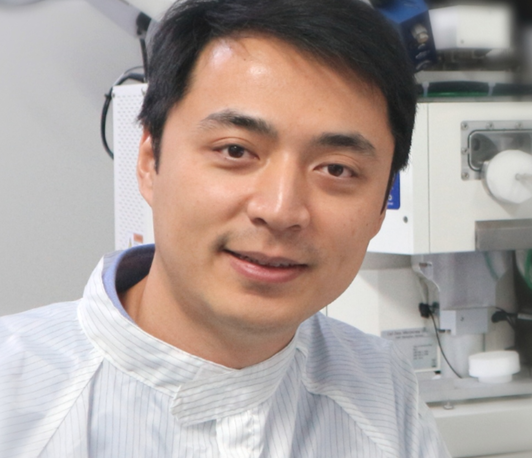Recent progresses on superconductivity in twisted cuprates, LixFeSe, and NbSe2
MPSD Seminar
- Datum: 17.12.2024
- Uhrzeit: 10:30 - 11:30
- Vortragender: Ding Zhang
- Tsinghua University
- Ort: MPSD Bldg. 900
- Raum: Seminar Room EG.136

In this talk, I will present our recent progresses in three superconducting systems: twisted high-Tc cuprates, lithium intercalated FeSe, and 10-30 nm thick NbSe2. In the first part, I will discuss the Josephson effect in c-axis twisted cuprates [1,2]. In junctions with atomically flat interfaces, we observe pronounced Josephson tunneling across the twisted boundary at different twist angles. The latest findings include the observation of ac Josephson effect with both integer and fractional Shapiro steps, as well as the on-demand realization of superconducting diode effect. In the second part, I will present the surprising observation of the coexistence of high temperature superconductivity and ferromagnetism in FeSe after lithium intercalation [3]. We identify their coexistence through magneto-transport and scanning probe methods. Interestingly, superconductivity seems to be enhanced under an in-plane magnetic field, suggesting non-trivial interplay between the two usually antagonistic phenomena. Lastly, I will talk about the tunneling spectroscopy on exfoliated NbSe2 thin flakes under an in-plane magnetic field [4]. This layered system with strong spin-orbit couplings is expected to host a novel state of matter—the orbital Fulde-Ferrell-Larkin-Ovchinnikov (FFLO) state. We demonstrate its existence by reporting the observation of a first-order phase transition between the uniform superconducting state and the orbital FFLO state.
[1] Y. Zhu, et al., Phys. Rev. X 11, 031011 (2021).
[2] H. Wang, et al., Nat. Commun. 14, 5201 (2023).
[3] Y. Hu, et al., arXiv: 2405.10482.
[4] Z. Cao, et al., arXiv: 2409.00373.
Ding Zhang is an associate professor at Department of Physics, Tsinghua University. He did his PhD study in Max Planck Institute for Solid State Research, Stuttgart, Germany from 2008 to 2014. He then joined Tsinghua University as a post-doc. Since 2016, Ding Zhang started the tenure-track in Tsinghua University and got tenured in 2022. He is an experimentalist in condensed matter physics, with the current interest in low-dimensional/high-temperature superconductivity, and low-temperature/high magnetic field transport techniques.
If you would like to meet with Ding during his visit, please contact Susan LaMoreaux and Chunyu Guo.